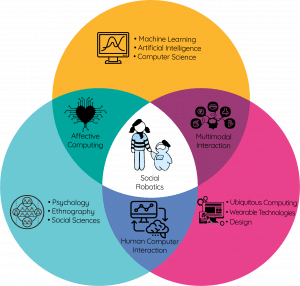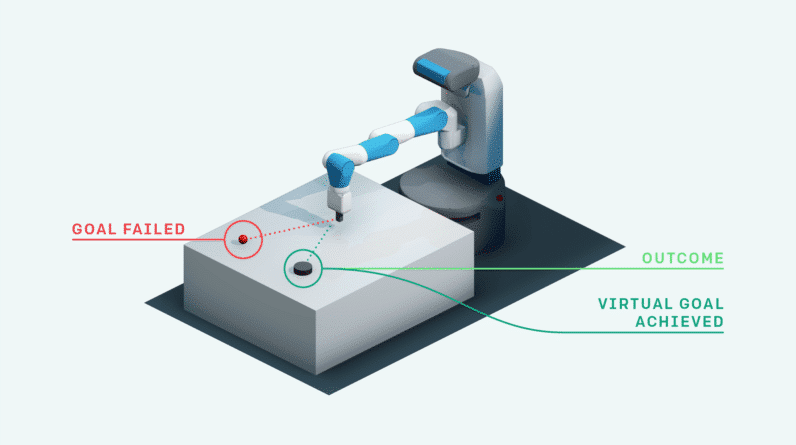Imagine a world where machines can solve complex problems in seconds, outperforming the most advanced supercomputers of today. This is the incredible promise of quantum computing, a game-changing technology on the horizon that could revolutionize the field of artificial intelligence (AI). With the potential to tackle problems too complex for classical computers, quantum computing holds the key to unlocking new frontiers in AI research and development. In this article, we explore the exciting possibilities and implications of quantum computing for the future of AI.

1. Understanding Quantum Computing
1.1 What is Quantum Computing?
Quantum computing is a revolutionary field of computer science that harnesses the principles of quantum mechanics to perform computations in a way that surpasses the capabilities of classical computing. While classical computers use bits to process and store information in binary form (0 or 1), quantum computers utilize qubits, which exist in multiple states simultaneously due to a phenomenon called superposition.
1.2 Principles of Quantum Computing
At the heart of quantum computing lies the principles of superposition, entanglement, and quantum interference. Superposition allows qubits to exist in a combination of both 0 and 1 states, exponentially increasing the computational power. Entanglement, on the other hand, enables the correlation of multiple qubits in such a way that the state of one qubit is dependent on the state of another, even if they are physically separated. Lastly, quantum interference allows for the manipulation and control of qubits through the use of quantum gates.
1.3 Quantum Bits (Qubits)
Quantum bits, or qubits, are the fundamental units of information in quantum computing. Unlike classical bits, which can only represent a 0 or 1, qubits can represent both states simultaneously due to superposition. This unique property of qubits enables quantum computers to perform computations on an exponentially larger scale compared to classical computers. However, qubits are incredibly delicate, and maintaining their state is a significant challenge in quantum computing.
1.4 Quantum Gates
Quantum gates are analogous to classical logic gates and are the building blocks of quantum circuits. These gates are used to manipulate qubits and perform various operations on them. Quantum gates can perform operations such as flipping the state of a qubit, rotating the state of a qubit, and entangling qubits together. By chaining these gates together, complex quantum algorithms can be implemented, allowing for powerful computational capabilities.
1.5 Quantum Superposition and Entanglement
Quantum superposition is a fundamental principle in quantum computing, where qubits can exist in a combination of both 0 and 1 states simultaneously. This property allows for parallel processing and massively increases computational power. Entanglement, on the other hand, is a phenomenon where the state of one qubit becomes correlated with the state of another, even if they are physically separated. This interconnection enables quantum computers to perform computations on a larger scale and tackle complex problems more efficiently.
1.6 Quantum Computing vs. Classical Computing
Quantum computing holds the potential to revolutionize the field of computing by solving problems that are currently beyond the reach of classical computers. While classical computers use bits to represent information in a binary format, quantum computers utilize qubits, which can exist in multiple states simultaneously. This inherent parallelism allows quantum computers to solve certain problems much faster than classical computers. Quantum computing has the potential to significantly impact fields such as cryptography, optimization problems, and even artificial intelligence.
2. The Current State of Artificial Intelligence
2.1 Traditional AI Algorithms
Artificial Intelligence (AI) has made significant strides in recent years, primarily through the development and application of traditional AI algorithms. These algorithms are designed to mimic human intelligence by performing tasks such as pattern recognition, decision-making, and natural language processing. Examples of traditional AI algorithms include search algorithms, expert systems, and rule-based systems. While these algorithms have proven effective in various domains, they are limited by the capabilities of classical computing systems.
2.2 Limitations of Classical Computing in AI
Although classical computers have facilitated advancements in AI, they have certain limitations. Classical computers are based on classical physics principles and operate sequentially, processing instructions one at a time. This sequential processing restricts the speed at which complex AI algorithms can be executed. Additionally, classical computers face limitations in processing vast amounts of data and suffer from the curse of dimensionality, limiting their ability to handle complex real-world problems efficiently.
2.3 Machine Learning and Deep Learning
Machine learning and deep learning are subfields of AI that have gained significant traction in recent years. These approaches enable computers to learn from data and make predictions or decisions without being explicitly programmed. Machine learning algorithms extract patterns and insights from data, allowing systems to improve their performance over time. Deep learning, a subset of machine learning, leverages artificial neural networks inspired by the human brain to process and analyze complex data, such as images, audio, and text.
2.4 AI’s Impact on Various Industries
Artificial intelligence has transformed numerous industries, revolutionizing sectors such as healthcare, finance, transportation, and manufacturing. In healthcare, AI is used for diagnosing diseases, developing personalized treatment plans, and analyzing medical images. In finance, AI algorithms are employed for fraud detection, risk assessment, and algorithmic trading. Transportation has seen advancements in self-driving vehicles, route optimization, and traffic prediction, thanks to AI. AI has also played a significant role in optimizing manufacturing processes, predicting maintenance needs, and enhancing quality control in the manufacturing sector.

3. Quantum Computing: A Game-Changer for AI?
3.1 Quantum Computing’s Potential to Enhance AI
Quantum computing has the potential to revolutionize the field of AI by overcoming the limitations of classical computing and unlocking new computational capabilities. Quantum computers can process and analyze vast amounts of data exponentially faster than classical computers, enabling more accurate and efficient AI algorithms. Additionally, the ability of qubits to exist in superposition and be entangled opens up new possibilities for parallel processing and optimization, which can greatly enhance the performance of AI algorithms.
3.2 Quantum Machine Learning
Quantum machine learning is an emerging field that combines quantum computing techniques with machine learning algorithms. By leveraging the computational power of quantum computers, researchers aim to develop more efficient and accurate machine learning models. Quantum machine learning algorithms have the potential to solve complex problems in areas such as pattern recognition, anomaly detection, and data classification. However, this field is still in its early stages, and more research is needed to fully exploit the capabilities of quantum computing for machine learning.
3.3 Solving Complex Optimization Problems
Optimization problems are common in various domains, including AI. These problems often involve finding the best solution from a vast number of possible options. Quantum computing’s parallel processing capabilities make it exceptionally well-suited to tackle complex optimization problems efficiently. Quantum algorithms, such as the Quantum Approximate Optimization Algorithm (QAOA) and the Quantum Integer Programming (QIP) algorithm, have shown promising results in solving a wide range of optimization problems, including those encountered in AI applications.
3.4 A More Efficient Approach to Data Processing
The vast amount of data generated in AI applications poses a significant challenge for classical computing systems. Quantum computing offers a more efficient approach to data processing, enabling faster analysis of large datasets. By leveraging the unique properties of qubits, such as superposition and entanglement, quantum computers can process and analyze multiple datasets concurrently, potentially leading to breakthroughs in areas such as natural language processing, image recognition, and data mining.
4. Implementing Quantum Computing in AI
4.1 Quantum Random Number Generation
Random number generation is a fundamental component of many AI algorithms. Quantum random number generators (QRNGs) utilize the inherent randomness of quantum systems to generate truly random numbers. Unlike classical pseudo-random number generators, QRNGs provide a higher level of randomness, which is essential for tasks such as cryptography, simulations, and Monte Carlo methods used in AI applications.
4.2 Quantum Neural Networks
Neural networks are a foundational element of many AI models, mimicking the structure and function of the human brain. Quantum neural networks (QNNs), which leverage the computational power of quantum computers, have the potential to enhance the performance of AI algorithms. QNNs can process and analyze quantum data more efficiently, enabling better pattern recognition, anomaly detection, and decision-making. However, developing robust QNN architectures and training methods poses significant challenges that require further research.
4.3 Quantum Data Clustering
Data clustering is a crucial task in various AI applications, allowing the identification of meaningful groups or patterns within datasets. Quantum data clustering algorithms leverage the parallel processing capabilities of quantum computers to find optimal clustering solutions faster than classical algorithms. By exploiting the quantum properties of qubits, these algorithms can potentially provide more accurate clustering results, enabling deeper insights and improved decision-making in AI applications.
4.4 Quantum AI Algorithms
Researchers are actively exploring the development of quantum algorithms specifically designed for AI applications. These algorithms aim to leverage the unique properties of quantum computing to improve the efficiency, accuracy, and scalability of AI models. Quantum AI algorithms are being developed for tasks such as natural language processing, image recognition, recommendation systems, and reinforcement learning. While still in the early stages of development, these algorithms show promise in pushing the boundaries of AI capabilities.

5. Challenges and Limitations
5.1 Quantum Error Correction
One of the significant challenges in quantum computing, and subsequently in its applications to AI, is quantum error correction. Qubits are fragile and susceptible to external disturbances, leading to errors in the quantum computation. Quantum error correction techniques aim to detect and correct these errors to preserve the integrity of the computation. Developing efficient and scalable error correction methods is crucial for the reliable operation of quantum computing systems and their successful integration with AI algorithms.
5.2 Scalability and Quantum Volume
Scalability is another major challenge in quantum computing. Currently, quantum computers have a limited number of qubits and suffer from high error rates. As AI algorithms often require significant computational resources, scaling up quantum computing systems to handle complex AI tasks is a formidable challenge. Increasing the number of qubits while maintaining low error rates, as quantified by the measure of quantum volume, is essential for realizing the full potential of quantum computing in AI.
5.3 Resource Requirements
Quantum computing requires specialized hardware and infrastructure, including extremely low temperatures and precise control systems. Building and maintaining these resources can be costly and technically demanding. The energy consumption of quantum computers is also a concern, as it can be significantly higher compared to classical computing systems. Overcoming these resource requirements is essential for widespread adoption of quantum computing in AI applications.
5.4 Ethical Considerations
As quantum computing and AI advance, ethical considerations become increasingly important. The potential for enhanced computational power and data processing capabilities raises concerns about privacy, security, and bias in AI algorithms. Ensuring transparency, fairness, and accountability in the development and application of quantum-powered AI algorithms is crucial to prevent unintended consequences and ethical dilemmas.
6. Current Research and Future Outlook
6.1 Quantum Computing for AI: State of the Art
The current state of quantum computing for AI is still in its early stages, with most research focused on exploring the theoretical foundations and developing proof-of-concept algorithms. However, significant progress has been made in areas such as quantum machine learning, quantum neural networks, and quantum optimization algorithms. Ongoing research aims to overcome the challenges of quantum error correction, scalability, and resource requirements to make quantum computing a viable platform for AI applications.
6.2 Quantum Computing in Industrial Applications
While quantum computing for AI is still a developing field, there is a growing interest in its potential industrial applications. Industries such as finance, healthcare, logistics, and energy are exploring ways to leverage the power of quantum computing to enhance their AI capabilities. Collaborations between quantum computing and AI experts, as well as partnerships between academia and industry, are accelerating the development and adoption of quantum-powered AI solutions.
6.3 Collaborative Efforts and Partnerships
The advancement of quantum computing in AI requires collaborative efforts and partnerships between academia, industry, and government entities. Collaborative research initiatives are essential for sharing knowledge, expertise, and resources necessary to overcome the challenges and limitations of quantum computing and harness its full potential for AI applications. Public-private partnerships play a crucial role in funding research, driving innovation, and promoting the adoption of quantum-powered AI solutions in various sectors.
6.4 Predictions for the Future of Quantum Computing in AI
While the future of quantum computing in AI is still uncertain, several predictions can be made based on current trends and developments. As quantum technology advances and error correction techniques improve, quantum computers with a significant number of qubits and low error rates will become more accessible. This will lead to the development of more sophisticated quantum AI algorithms that can outperform classical algorithms in various domains. Quantum computing has the potential to transform AI by enabling breakthroughs in machine learning, optimization, and data processing, ultimately revolutionizing industries and society as a whole.
In conclusion, quantum computing stands as the next frontier for AI, with the potential to revolutionize the field and unlock new computational capabilities. By harnessing the principles of quantum mechanics, quantum computing offers a more efficient and powerful approach to solving complex AI problems. While there are challenges and limitations to overcome, ongoing research and collaborative efforts are paving the way for a future where quantum-powered AI solutions become a reality. The journey towards quantum computing and AI integration is an exciting and transformative one, holding immense possibilities for the advancement of technology and its impact on various industries.







